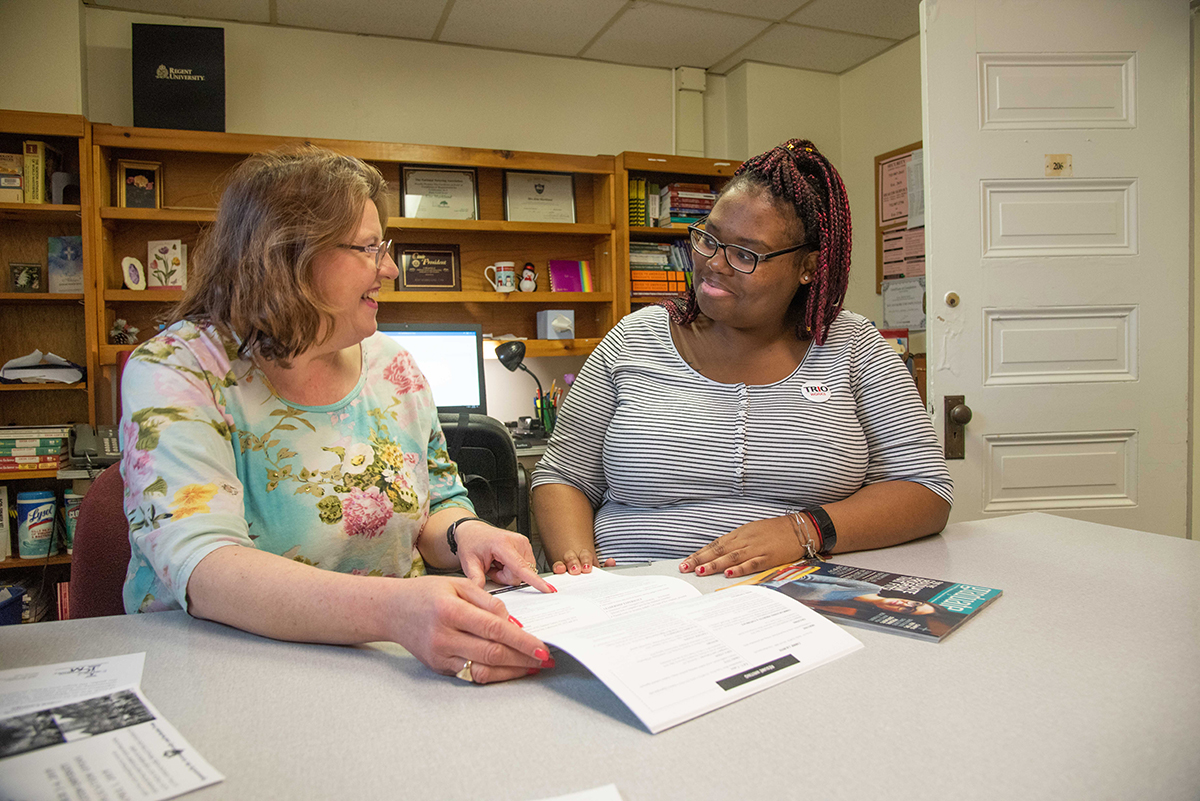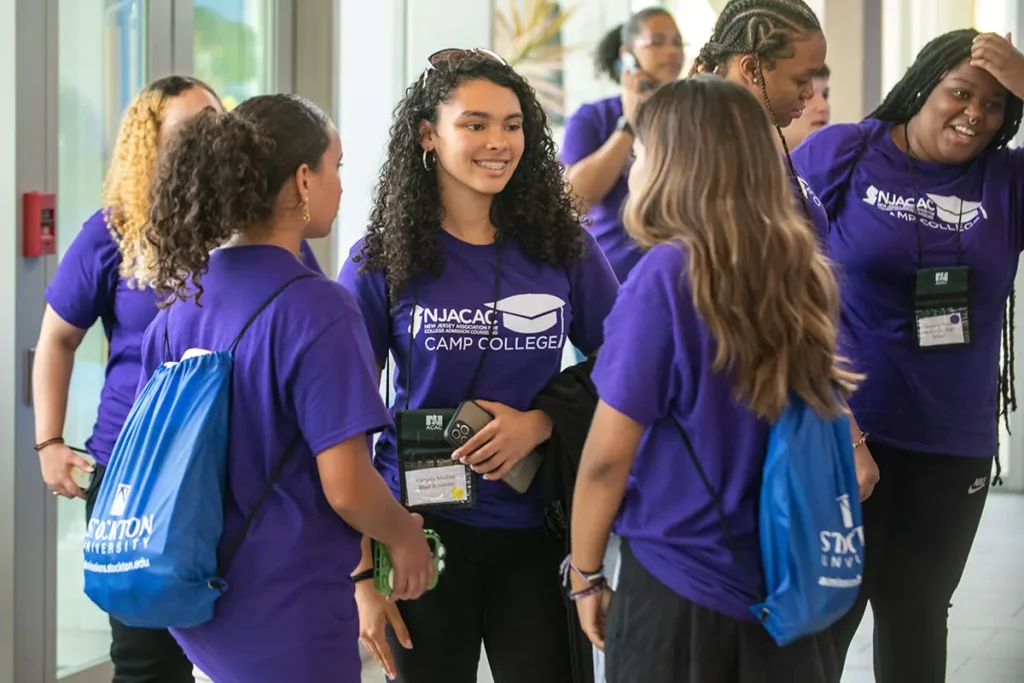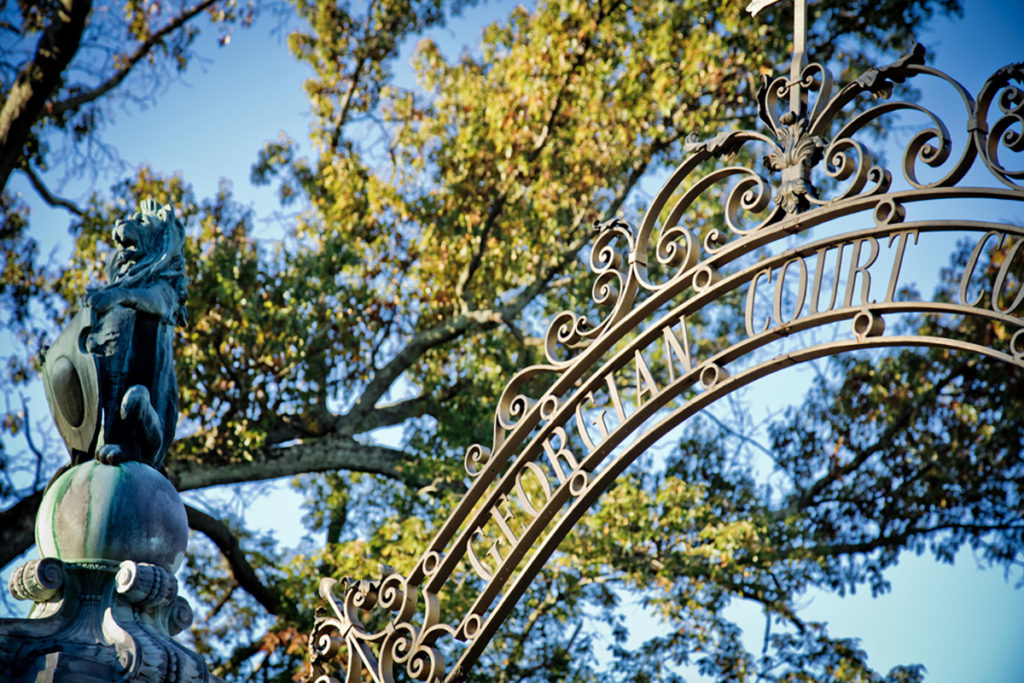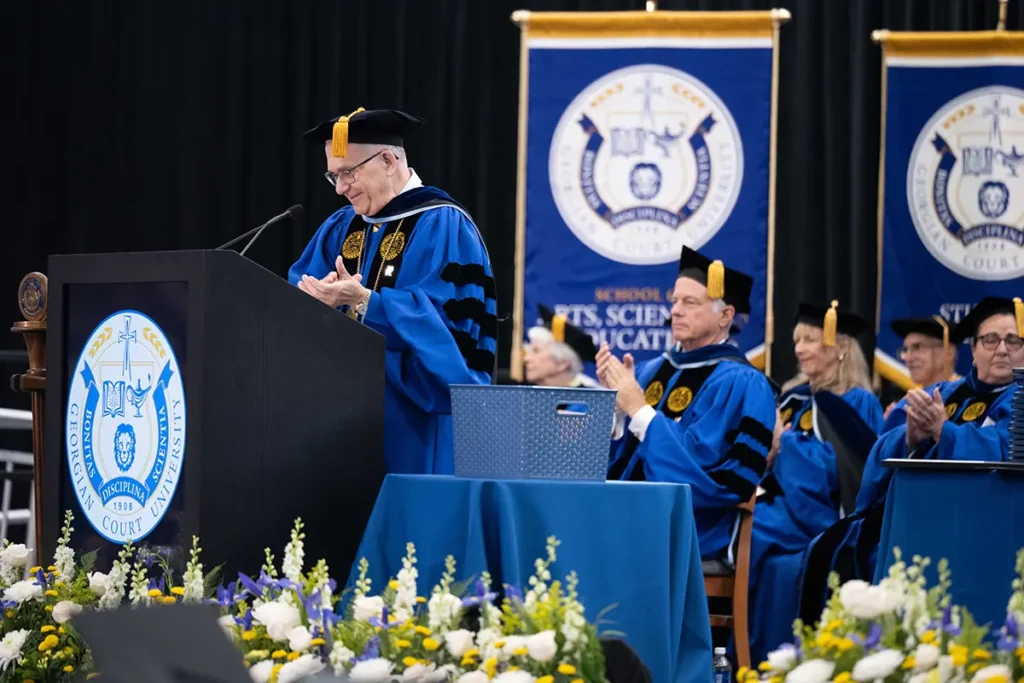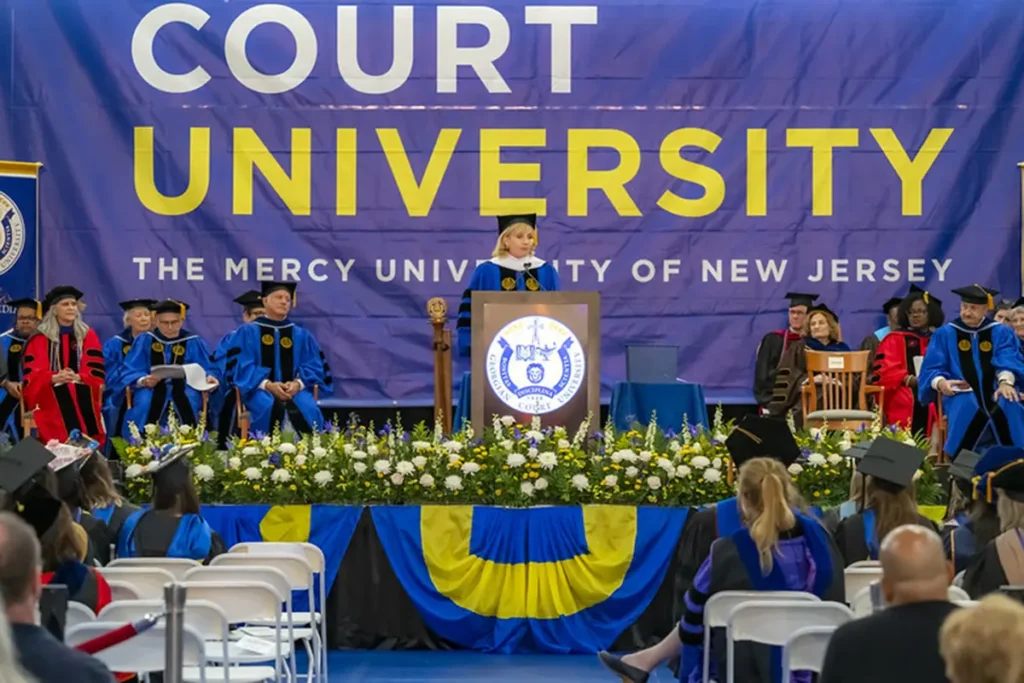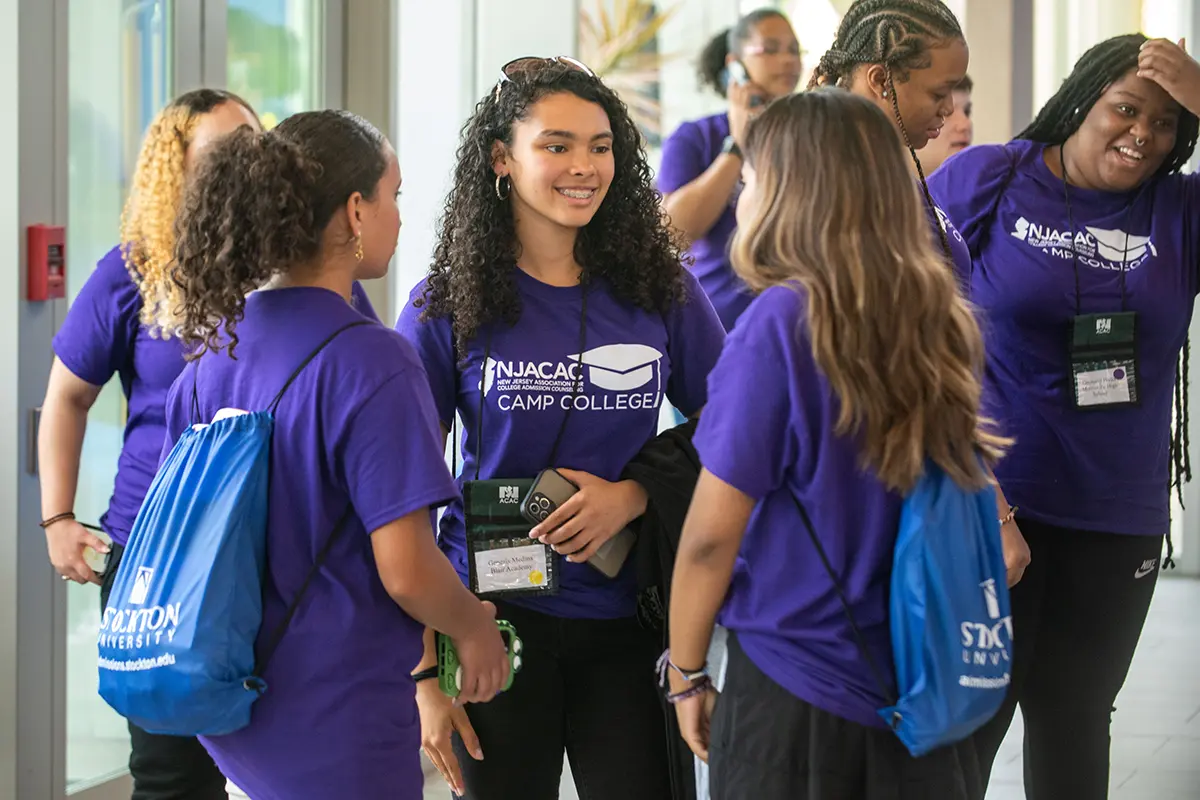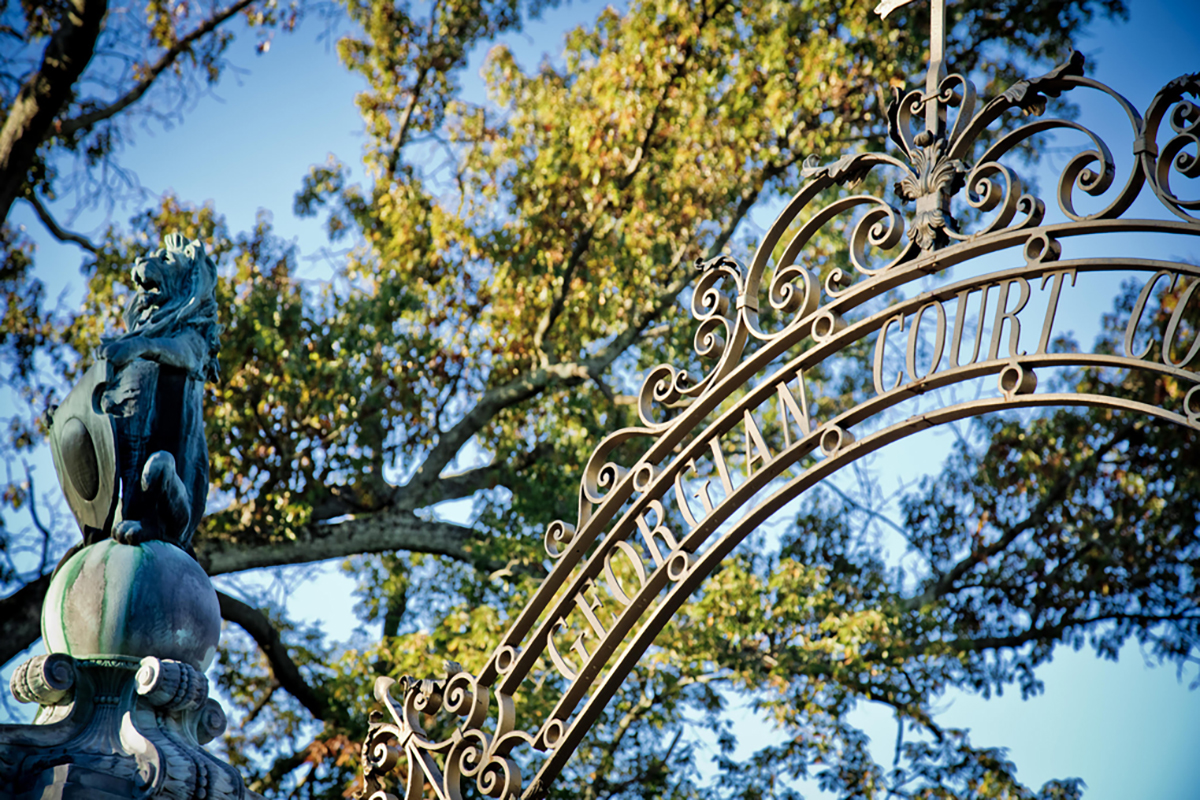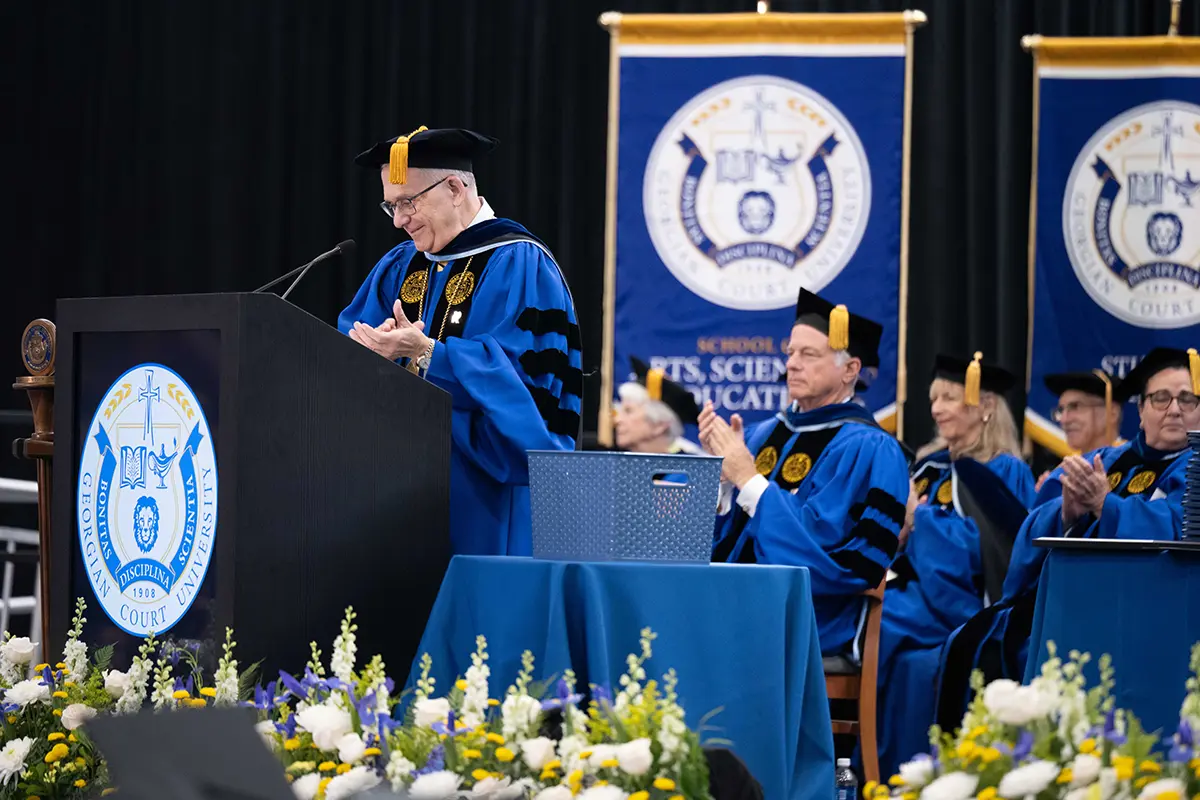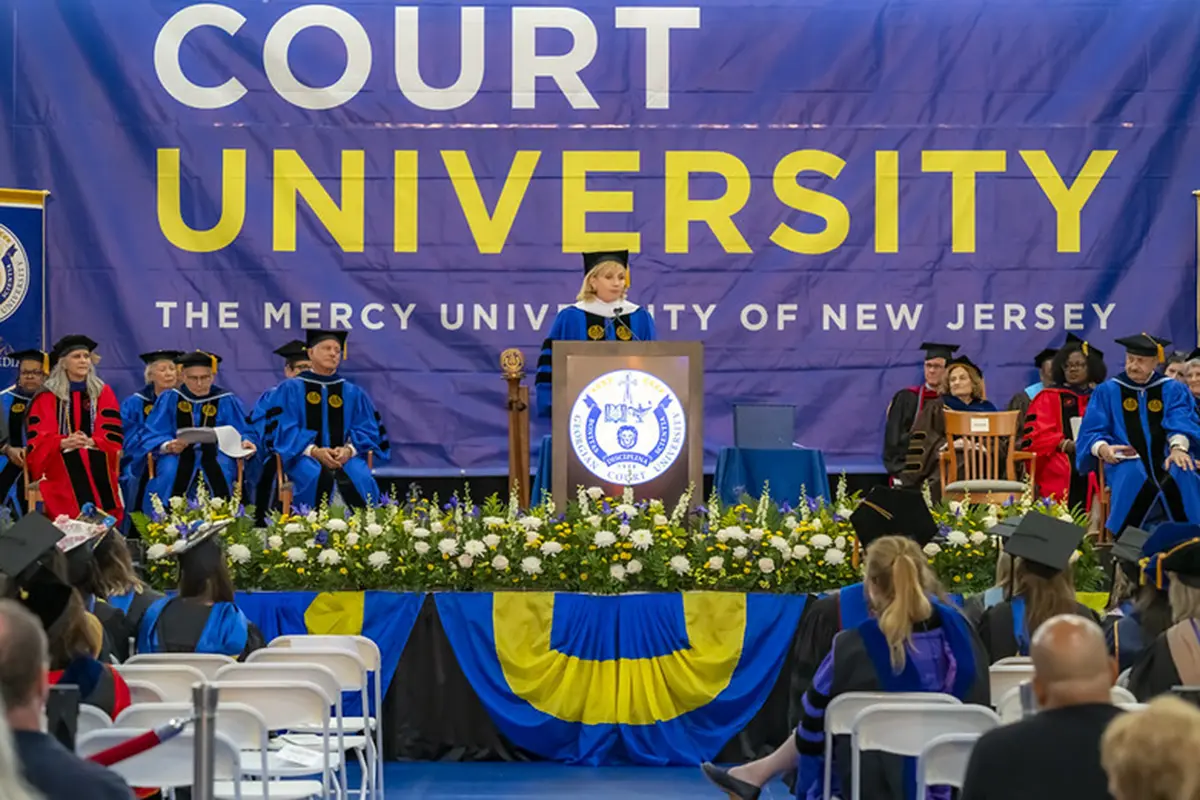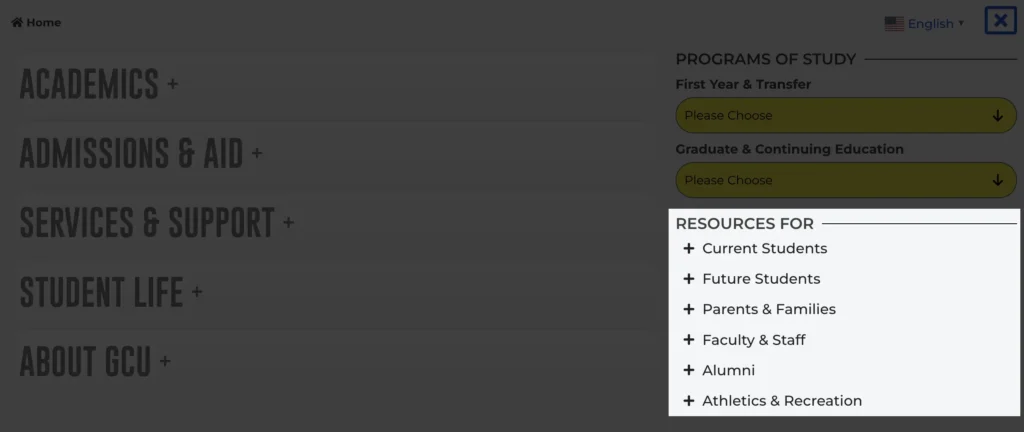First-generation college students are at the center of a special Georgian Court University celebration recognizing their success and importance to the university community. Campuswide, 40 percent of Georgian Court’s full-time undergraduate students are first in their families to attend college. Nationwide, about one-third of undergraduate students attending college are from homes where neither parent has a bachelor’s degree.
The value associated with earning a degree is not lost on first-generation college students, who often see it as a path to economic growth and social mobility. And for many, going to college is an opportunity to give back—both to family and to the community.
“Being a first-generation student is important to my family, because now my mom and dad can see that their sacrifices and dedication to the grind are paying off, because they paved the road, so now it’s time for us to just conquer it,” said Georgian Court accounting major Javier Lopez.
In addition to attending college, the Brick, New Jersey, resident also works as a patrolman with the local police department. Ultimately, Javier would like to put his accounting degree to work with a federal agency like the FBI, or possibly with municipal law enforcement.
Achieving First-Generation College Success
“We know that our work with first-generation college students is helping to change their personal narratives about what is possible academically and professionally. We encourage and motivate them to recognize the wealth of their individual experiences and unique perspectives to help them achieve college success,” said Danielle Staten Lamb, director of Georgian Court’s TRIO-Student Support Services program and a first-generation college student herself.

“Being a first-generation college student is very important to me—as well as my family—because my family did come to this country for a better future,” said Heidy Ojeda, a sophomore from Newark, New Jersey, majoring in psychology and criminal justice. “I am the change in my family, and that makes me so happy and so proud because college is very difficult,” she said.
Heidy is candid about her experience as a first-generation college student, and is among those Georgian Court will feature in social media testimonials on Facebook and Instagram.
The aspiring forensic psychiatrist continued: “When you have a support system and your family pushes you to do so good in college, I think that that’s so important because you’re getting an education and doing something good for yourself and for generations to come.”
“A college education is the gateway to a better life in America,” said Georgian Court President Joseph R. Marbach, Ph.D. “And in the words of former Seton Hall President Monsignor Robert Sheeran, ‘Education is the new Ellis Island.'”
Dr. Marbach, who has spent his career in Catholic higher education, believes first-generation college students bring something special to the campus environment. And each year, at the Convocation ceremony marking the start of the academic year and at Commencement, marking the end of students’ journey, he recognizes faculty members, staffers, and audience guests who were once first-generation college students.
“No matter the institution, the best word to describe what first-generation students have is ‘grit,'” said Dr. Marbach. “They take great pride in being the first in their families to earn a college degree. They understand how valuable education is, especially to those who’ve been denied a college education.”
Celebrating First-Generation College Students
Georgian Court’s celebration is part of a national movement, now in its third year, to recognize this special group of students. In 2017, the Council for Opportunity in Education (COE), in partnership with the Center for First-Generation Student Success, an initiative of NASPA and the Suder Foundation, celebrated the inaugural First-Generation College Celebration with an event on Capitol Hill. This year, college and university campuses around the nation will hold rallies, panel discussions, listening sessions, celebrations, and more in recognition of their first-generation students, staff, and faculty. On social media, supporters are using #CelebrateFirstGen to share events and join in conversations.
The 2019 celebration also marks the 54th anniversary of the signing of the 1965 Higher Education Act (HEA), which has helped millions of first-generation, low-income/under-resourced students persist to degree completion.
“Celebrating the accomplishments of our first-generation students across the country not only sheds light upon their vast abilities but fosters an environment of asset-based approaches to serving this student population,” said Sarah E. Whitley, Ph.D., senior director of the Center for First-Generation Student Success, an affiliate of NASPA–Student Affairs Administrators in Higher Education.
Recognizing the impact of the Higher Education Act also leads to important, intentional conversations, according to supporters of the event.
“Millions of students who have benefited from the programs created by the Higher Education Act have subsequently helped shape our country as astronauts, judges, scientists, politicians, scholars, writers, business leaders, and more,” added Maureen Hoyler, president of the COE. Her organization partners with the Center for First-Generation Student Success to promote the annual celebration.
“We saw great success with the 2018 celebration and it’s especially important to continue recognizing these accomplishments because, even in 2019, campuses and communities can overlook the academic capabilities that lie dormant within so many first-generation students,” said Ms. Hoyler.
A Few Facts
The challenges and promise of first-generation college students are central to a growing body of research studies, national policy discussions, and higher education reforms. A few recent findings suggest first-generation college students are:
- “More than twice as likely to leave school within three years (33 percent) than students whose parents have a bachelor’s degree (14 percent), according to the National Clearinghouse for Education Statistics. And only 48 percent of first-gen students are on track to graduate three years after enrollment, compared to about 66 percent of non-first-gen students.” (Source: EAB)
- “More likely to choose careers that give back to their communities. Almost two-thirds (61 percent) of first-gen students say they’d like to give back to their communities after they graduate, compared with just 43 percent of their non-first-generation peers, according to a study from the American Psychological Association. (Source: EAB)
- Working more hours while enrolled in school than their non-first gen peers. First-generation students are working about 20 hours a week, compared to other students who put in about 12 hours weekly. (Source: NASPA)
- Working off campus more often than their non-first gen peers. Not including work-study jobs, about 6 percent of first-generation students work on campus, compared to 12 percent of other students. (Source: NASPA)
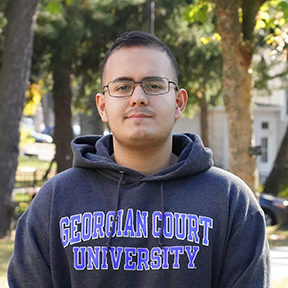
Words to the Wise
Students like Heidy and Javier are succeeding because of their hard work ethic and unflinching commitment to completing college. They also recognize the importance of encouraging others who may be the first in their families to finish college.
“It may feel like no one really understands you, but that’s part of the process,” says Heidy. “It takes one person to create a domino effect. And I think that it’s so important to push yourself to go to college, because even if you are hesitant, education goes a long way.”
Her colleague, Javier, offered additional advice:
“Always have a ‘why,’” he said. “Your ‘why’ could be a list of family members or goals or future positions that you want. Your ‘why’ drives you to just keep accomplishing your goals,” he said. “And a good thing to remember is, the stronger the ‘why,’ the easier the ‘how.’ That’s a good method to go with.”
About the Council for Opportunity in Education and the Center for First-Generation Student Success
The Council for Opportunity in Education (COE) is a nonprofit organization, established in 1981, dedicated to furthering the expansion of college opportunities for low-income, first-generation students, and students with disabilities. Through its numerous membership services, the council works in conjunction with colleges, universities, and agencies that host federal TRIO programs that help approximately 828,000 low-income students and students with disabilities each year receive college access and retention services. The Center for First-Generation Student Success, an initiative of NASPA and the Suder Foundation, serves as the premier source of evidence-based practice, professional development, and knowledge creation for the higher education community while advancing innovation and advocacy for the success of first-generation college students.

